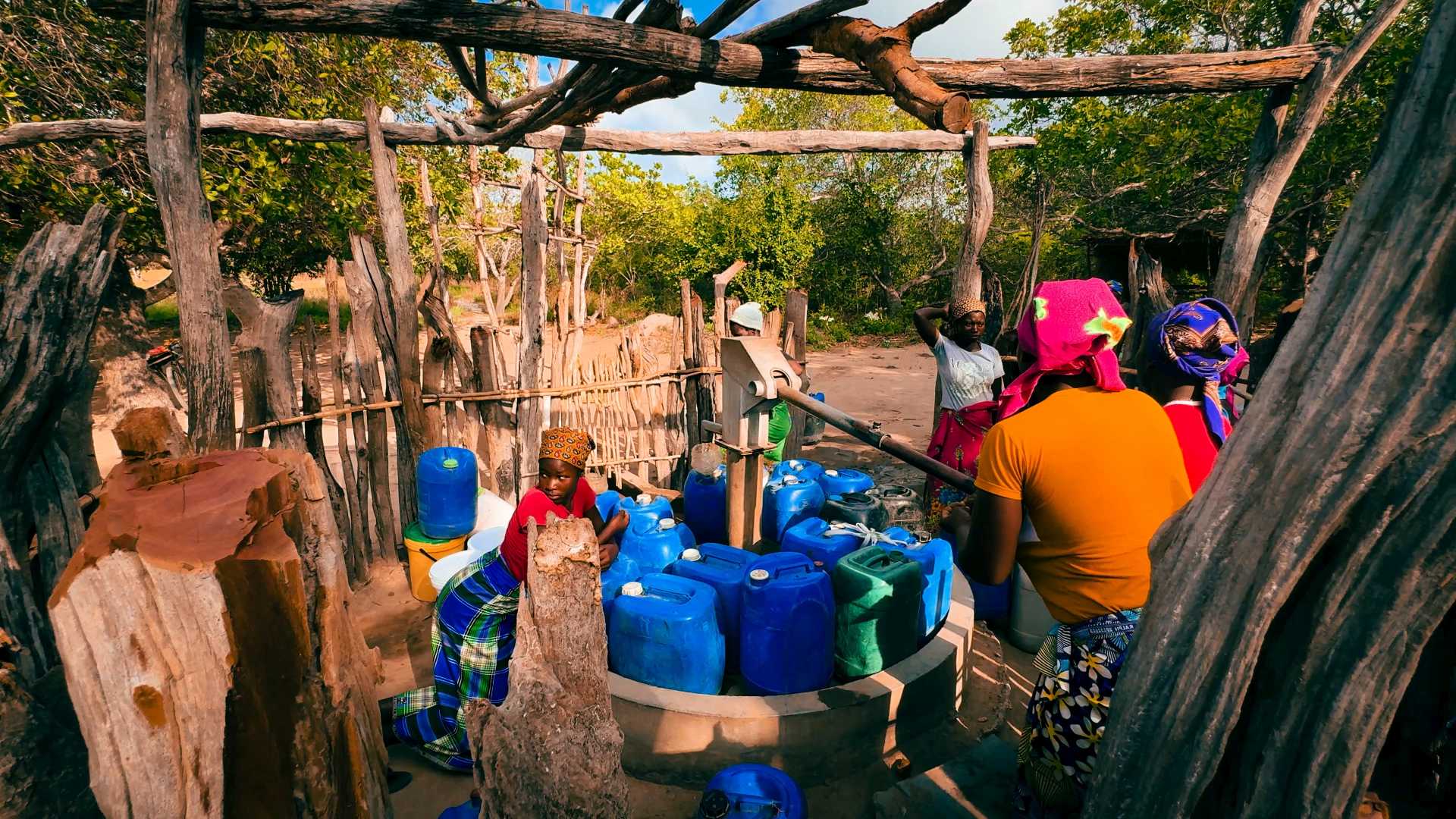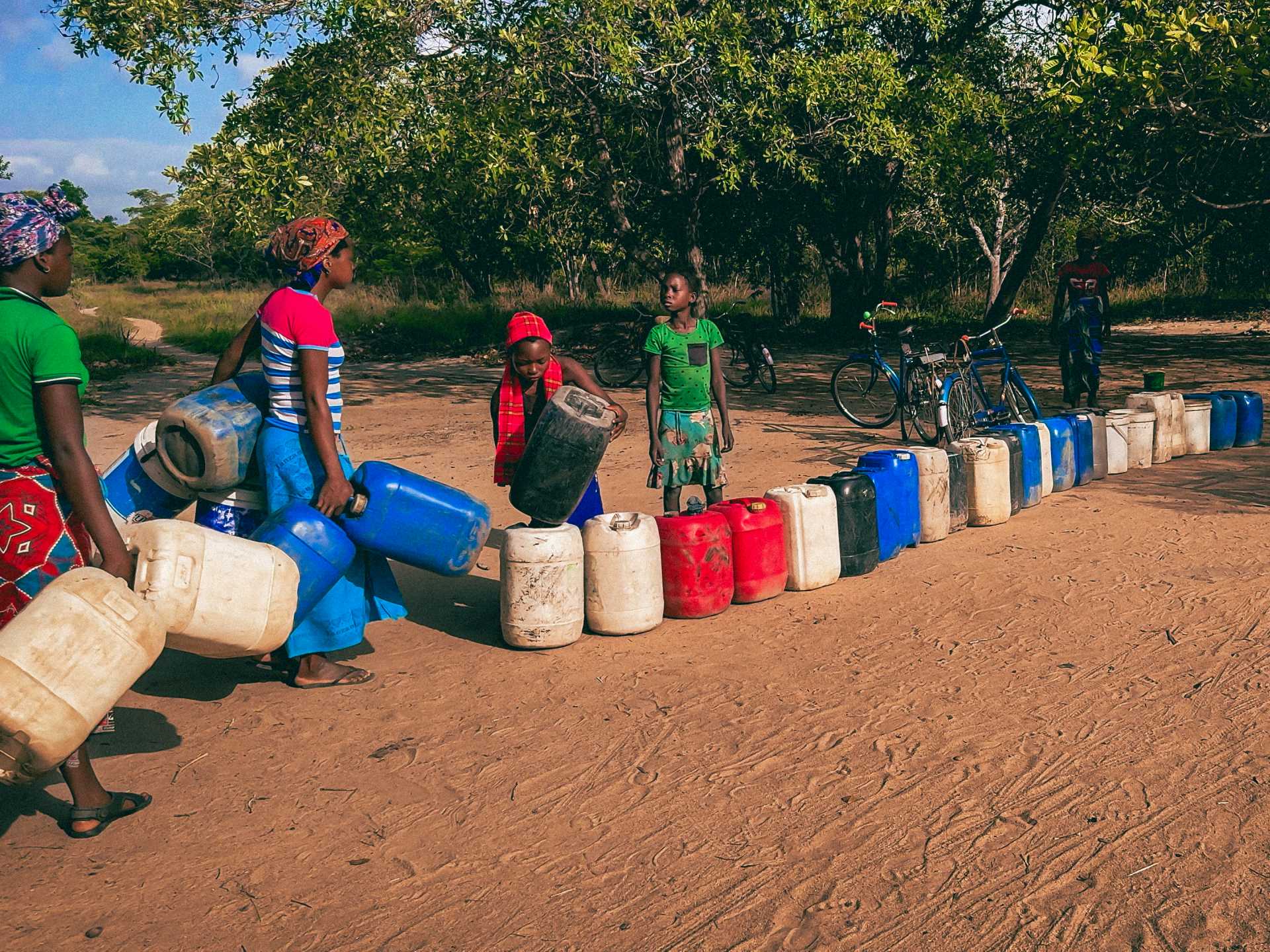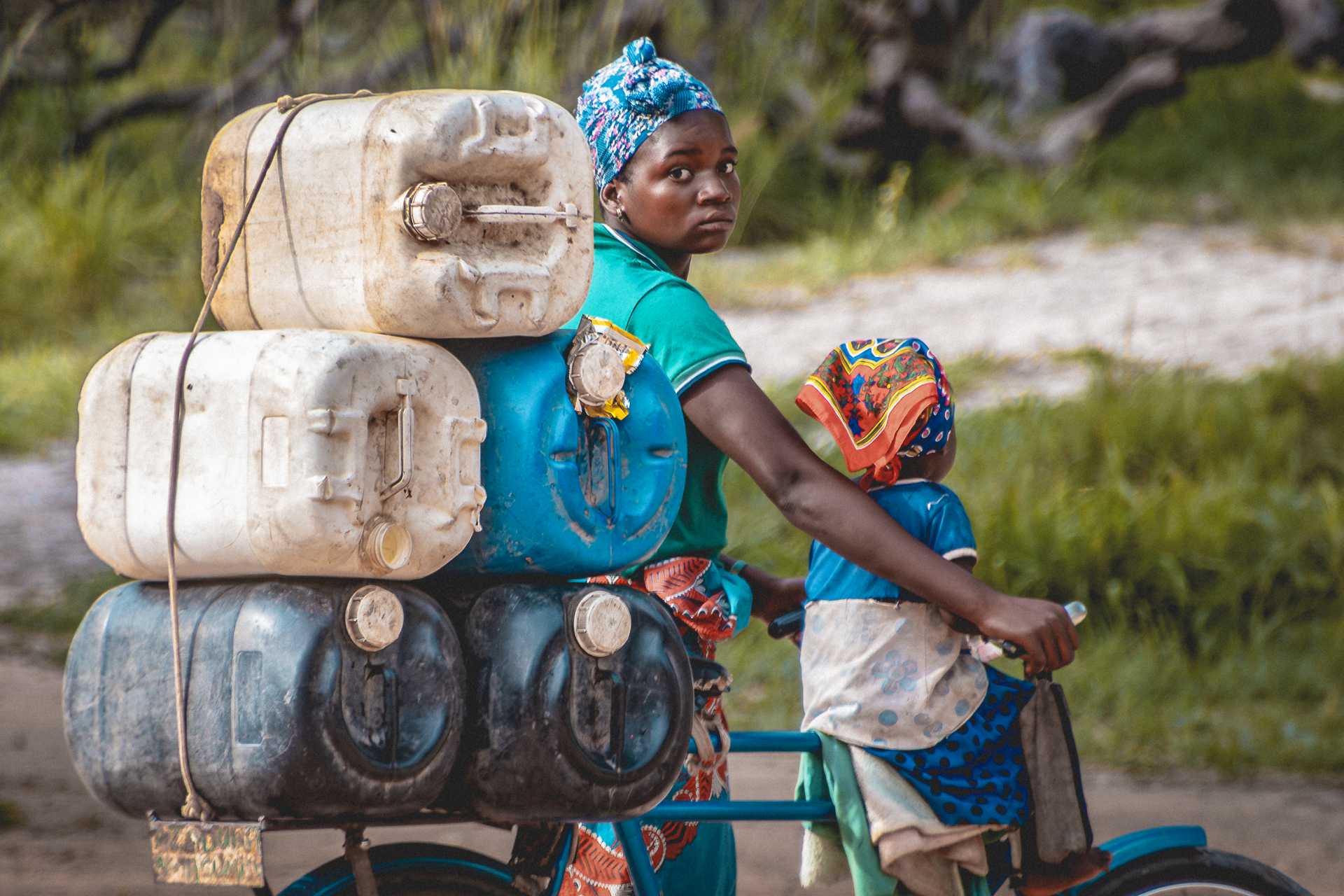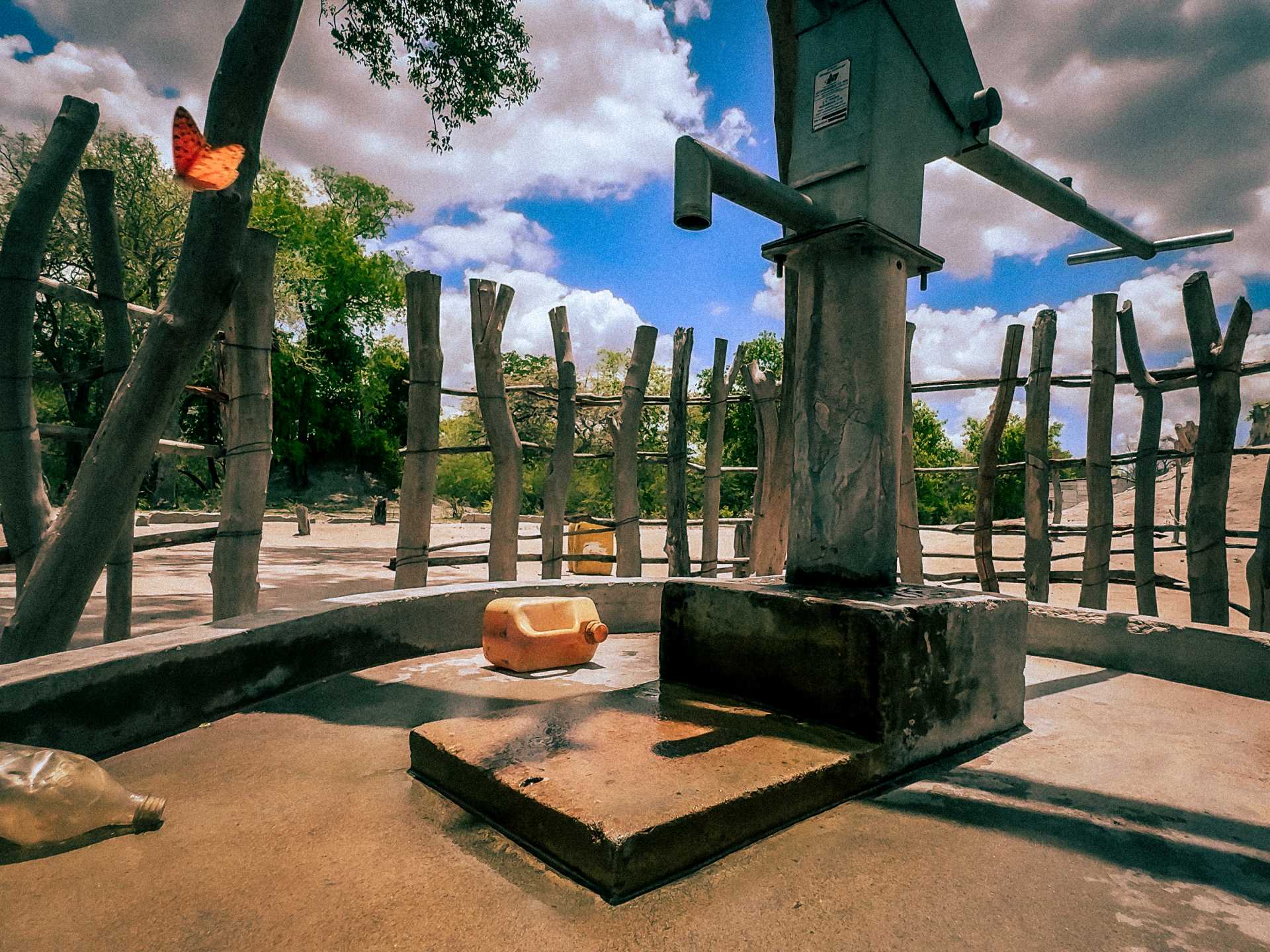This is the story of Sibonguile, a school girl from Mozambique, who represents how revitalising community-led water management can transform education and daily life.
Water or school?
Sibonguile goes to school in the Machaze district in Western Mozambique. Until recently, she had to walk long distances to the next water point to fetch water – and queue there. “I arrived at 10 a.m. and left at 2 p.m,” she recounts.
As a girl, Sibonguile is responsible within her family to fetch water regularly, which often meant that she was late for school. Sometimes she couldn't even wash her uniform, and above all, her school lacked the most basic hygiene. The scarcity of water wasn’t just inconvenient – it was a risk to health and a barrier to opportunity.

A barrier to opportunity
“Sometimes I didn't even go to school because I didn’t have water to wash my uniform.”
– Sibonguile

Photos by Trevor de Jongh
Lack of maintenance
When the local team at the Mozambican NGO Jossoal heard about Sibonguile’s situation, they realized this was a wider issue that could be solved relatively easily. Although water pumps are build, many break down over time due to lack of maintenance.
While communal water committees existed, this was often only on paper, as they had no tools or proper training to carry out effective operations. As a result, residents of the region walked over 15 kilometers to one of the few working pumps.
Thirsty cattle
“The water is also for our cattle. Before, they had to go long distances, and sometimes they didn’t drink at all. Now they can drink nearby, just like us.”
– Noe, relative of Sibonguile
Pedza Nhota - Quench your thirst
With support from the City of Vienna, Sei so frei Wien, and a horizont3000 advisor, the Pedza Nhota project began. Starting from communities like Sibonguile’s, Jossoal repaired broken pumps and brought clean water back. Tools like Tippy tap systems for water-saving and hygienic handwashing were installed in schools, and theater groups were trained to disseminate WASH messages creatively. Crucially, community-led water committees learned how to maintain the pumps themselves.
Community-led water committees
The key was sustainability. Instead of one-time fixes, the project built local capacity: 77 new members of the water committees were trained in topics such as maintenance, community contributions, and conflict management.
Promoting the active participation of women and girls and strengthening their involvement in community decisions was crucial, as they are traditionally in charge of household water management – and consequently bear the brunt of the burden. It was a shift from waiting for outside help to owning the solution together.

Basic needs first
Sibonguile’s story helped bring attention to a larger problem. Thanks to Jossoal’s intervention, just a handful of working pumps now serve over 100,000 people – and that’s not even counting livestock. It’s not only a reminder of how far-reaching a relatively simple solution can be, but also that basic needs must be secured on a sustainable basis before other issues are addressed.
As Lélio Comissar, horizont3000 country director, put it: “Even with little, the project was a success. Water is a precious asset. We have to take care of it, because without water, there is no life.”

JOSSOAL (Jovens de SOALPO), a Mozambican NGO, was created in 2005 on the initiative of the workers of the local company TextAfrica to overcome oppression and gender inequality and improve the living conditions of women, girls and children in the province of Manica.